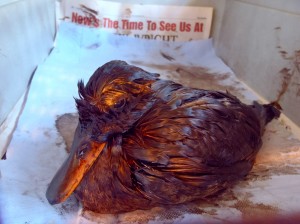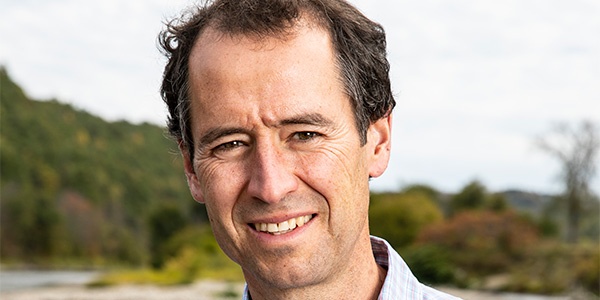We have much more to do and your continued support is needed now more than ever.
One Year After Mayflower, Time to Say ‘No’ to Dangerous Pipelines
On March 17, a damaged pipeline in southwest Ohio leaked 20,000 gallons of crude oil into a nature preserve. As if the oil itself hadn’t hurt enough small animals and wrecked enough habitat, crews had to build a new road through the preserve to get heavy cleanup machinery to the site.
On March 22, a fuel tanker and cargo ship collided in Galveston, Texas, dumping 168,000 gallons of fuel oil into Galveston Bay. TV images of beaches painted black with oil provided only a small snapshot of the habitat destruction taking place. A nearby wildlife sanctuary that attracts between 50,000 and 70,000 shorebirds annually was impacted and according to Texas Parks and Wildlife Department, thousands of those birds were put at risk.
And in Michigan a similar situation is unfolding. On March 24, BP’s Whiting refinery – one of the nation’s biggest, which was recently overhauled to process Canadian tar sands crude – spilled an unknown amount of oil into Lake Michigan, which supplies drinking water for 7 million people around Chicago and provides critical habitat for countless birds, fish and animals living along the shoreline .
Pipeline accidents and oil spills now are occurring almost like a plague spreading to communities across the U.S. Three oil spills in different states in just the past two weeks!
Communities and Wildlife Pay a High Price for Spills While Oil Industry Profits Soar
According to an analysis of data from the agency charged with regulating pipelines, since 1986 there have been nearly 8,000 significant pipeline incidents, resulting in more than 500 deaths, more than 2,300 injuries, and nearly $7 billion in damage. We have all seen the oiled sea otters, ducks, pelicans, turtles and other wildlife from these horrific spills.

A year ago this weekend, residents of a quiet suburban neighborhood in Mayflower, Arkansas, watched helplessly as heavy, toxic tar sands oil gushed out of a pipeline, poured across their yards and into their street, covering everything in black muck and releasing toxic gases. The spill made national news, and people around the country saw residents being escorted out of their homes with just a few belongings. In the case of at least twenty-two families, never to return. Turtles, ducks, muskrats and other animals were all oiled, many of them killed.
The fossil fuel industry seems to think these spills are just a cost of doing business. Homes have been abandoned in Mayflower and residents have been forced to uproot their lives and leave. In Prince William Sound, lives and industries remain scarred . Wildlife in these areas continues to feel the impacts of ecological collapse. Yet, big oil profits have never been higher.
Enough is Enough
When, where and how big will the next spill will be? Will we able to clean it up—ever? And how many birds, fish and animals will suffer?
One year after Mayflower, it is clearer than ever that the time is now to move beyond risky fossil fuel and build a robust, clean, safe energy future.
We will only be free of the threat of oil spills when we end our dependence on oil.
We can start protecting our communities and wildlife and speed the transition away from risky oil by saying no to major pipeline proposals for oil we don’t need. The State Department is currently considering whether to approve two tar sands pipeline proposals – Keystone XL and the Alberta Clipper expansion. Tar sands is even harder to clean up than regular oil, and much of the tar sands oil traveling through these proposed projects would be exported.
By not locking in dirty, dangerous fossil fuel infrastructure, we will create more space and opportunity to advance development of cleaner, safer fuels.
President Obama has made a commitment to reducing carbon pollution. Saying “No” to tar sands pipelines is big step in that direction and will also keep communities and wildlife safe.





















